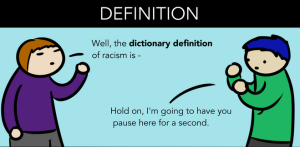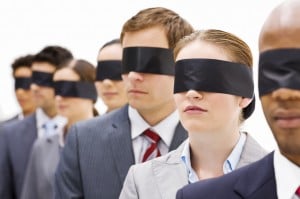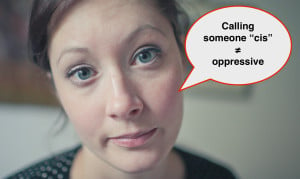
Source: Photos Public Domain
Scrolling through my phone’s text message inbox, I found the exact conversation between my then-girlfriend and me that I wanted my friend’s opinion on. I handed her the phone.
A quick glance, and she grimaced in disgust. “Doesn’t this bother you?”
“What?” I asked.
“The way that she texts. Is that even English?”
The phone back in my hand, I took a look. Sprinkled throughout the messages was shorthand like “thru” and “2nite.”
“Why would it bother me?” I asked, eyes narrowed.
“You’re an English teacher,” my friend stressed, as though I were unaware of my own profession – or, at least, her imagined responsibilities within the job description.
“It’s a text message,” I said, “not a cover letter.”
And as a recovering grammar snob myself – please don’t start about how I opened this article with a dangling preposition; it’s still bothering me – I understand the knee-jerk reaction to improper usage and mechanics.
I’m an editor, for God’s sake; I eat, sleep, and breathe correct comma placement.
But there’s a difference between understanding standard grammar and demanding it, between believing there’s a time and a place for so-called “proper” English and ridiculing anyone who steps outside of what you deem “acceptable.”
There’s a difference between appreciating language and being a snob.
And the last place that we need grammar snobbery is in social justice movements.
And not just because getting hung up on the correct use of homonyms or subject-predicate agreement is distracting to the job at hand, but also because purporting one form of English as elite is inherently oppressive.
So let’s talk about why.
What Is Grammar Anyway?
Plainly and simply, from a linguistics perspective, grammar is a set of rules that governs a language. There are many parts that make up a language – including morphology, phonology, semantics, syntax, and pragmatics – and grammar is the one that tells us how to compose sentences so that they make sense.
Grammar is what tells us that “In woman’s a the is place revolution” doesn’t make sense, but “A woman’s place is in the revolution” does. It lets us know how to string our words together so that we can successfully communicate.
The debate is in the question of what entails “successful communication.” And there are two schools of thought on this.
Prescriptive grammar – which is what “grammar snobs” champion – says that there’s such a thing as one true, honest, pure form of a language and that only that version is correct or acceptable.
Descriptive grammar, on the other hand, argues that however a language is being used to communicate effectively is correct – because that is the basic purpose of language.
So, if a person wrote a Facebook comment that said “That their was an example of cissexism,” a prescriptive grammarian might comment back, “I think you mean ‘there,’” and a descriptive grammarian might respond, “You understood what they meant.”
And while both schools are accepted forms of linguistic thought, it’s important to note that any time we create a hierarchy by positioning one thing as “better” than another, we’re being oppressive.
So listen up, prescriptive grammarians.
Language as the Oppressor
Ghanaian blogger Delalorm Semabia, in a conversation about the eradication of “the Queen’s English” in Ghana, explained, “The idea that intelligence is linked to English pronunciation is a legacy from colonial thinking.”
And this is precisely where we need to start this conversation.
As educated (and – okay – snarky) activists, we’re quick to respond to “According to the dictionary” arguments with “Who wrote the dictionary, though?”
We understand that a reference guide created by a white supremacist, heteropatriarchal system does nothing but uphold that status quo.
Similarly, we have to use that line of thinking when talking about the English language: Who created the rules? And who benefits from them?
As per usual, what this comes down to is an issue of privilege (of course!). In fact, grammar snobbery comes down to an intersection of multiple privileges.
Let me count the ways.
1. Educational Privilege
I will be the first to admit that I have an abundance of educational privilege, starting with parents who regularly took me to the library and bought me books and continuing through my recent acceptance into a PhD program.
I think that modern American grammar and the history of the English language are fascinating subjects. And that has a lot to do with the fact that I received an education that gave me room to care about them.
I had enough exposure and opportunity to find the future perfect tense interesting.
Not everyone has that opportunity; not everyone wants it.
If you were lucky enough to have parents around who read to you, to go to a Head Start program, to finish school, to go to college, to have enough time and passion to read books for pleasure, that’s fantastic.
But in the words of the late, great Kurt Vonnegut, Jr.: “All [semi-colons] do is show you’ve been to college.”
It was a privilege. And you can’t lose sight of that.
2. Class Privilege
That educational privilege I just spoke of? How do you think I got that, exactly? How do you think I believed myself able to afford the kind of crushing debt that comes with three degrees?
Well, not to put too fine a point on it: class privilege.
More specifically: class mobility.
Now, my parents grew up in working class families in a not-stereotypically-Bostonian Boston neighborhood. My mother went to college for only a semester before dropping out, and my father may or may not have graduated high school (he’s a little shady on the details).
At this point, though, my mother is a higher-up for an internationally based company. She’s a successful businesswoman. She (and by virtue of her, my family) has achieved upward mobility, which explains why the opportunities that I’ve had – and therefore, the way that I use language – are markedly different from that of my parents.
Because you take on the speech patterns of those around you.
If you spend enough time in another region, you’ll notice an accent forming. If you spend the bulk of your day with teenagers, you’ll find yourself slipping into slang.
Similarly, if you are privileged enough to be in a university setting or a white collar professional atmosphere, you’re more likely to use “proper” English.
That’s how I speak. And the fact that I’ve had more opportunity to be exposed to these settings than my parents did is the result of upward mobility and class privilege.
Similarly, when my mother is on the phone with work, she covers up her accent and remembers not to use “ain’t.”
And while part of it is purposeful (she wants to be devoid of any local color so that she isn’t immediately pegged as unintelligent), a lot of it is the result of her switch in surroundings.
And those surroundings are a privileged place to be.
When we (that is, society at large) deem people from working class backgrounds as somehow less-than because of the way that they use English, we’re being classist – plain and simple.
3. Race Privilege
One of my friends, who is a black woman, relayed to me once having called on the phone an auto mechanic for services and later showed up with her car.
“Oh,” they said, surprised, when she walked in. “We thought you were going to be a white woman.”
“Why?” she asked.
“Well,” they said, as though the answer should be obvious, “because of how you sounded on the phone.”
“Because I spoke proper?” she asked. They nodded.
She was frustrated – and rightfully so.
And let me be clear that this is only one example of a myriad of similar stories that I’ve heard around this same issue: that the use of “standard” English is considered a very white attribute.
We could spend all day parsing out how this applies to identity erasure and respectability politics, but let’s focus on how race privilege plays a part in language as an oppressive force.
To people who aren’t white, there’s such a thing as “sounding white.”
And the way that this happened is interesting.
As Jamie Utt points out in this article, Whiteness as a kind of common ground is a construct that was invented for some Europeans in order to band together.
And part of the process of “becoming White” included giving up your cultural linguistic identity in favor of a streamlined English.
If you, yourself, are white, you’ve probably never given much thought to this, aside perhaps from believing that you speak “correctly” and that everyone else who speaks a different type of English than you do speaks the language “wrong.”
And perhaps you’ve noticed how often “those people” are people of color.
And we (as a society) denounce any form of the language that isn’t “white” enough.
Umm, that’s racist.
The argument, for example, against AAVE saying that it’s “not grammatically correct” is bullshit.
It has its own phonology, its own rules regarding tense and aspect and negation. It has its own grammatical structure. It has to – or else it would never make sense to anyone.
It is a dialect of English. It is English.
But when we position the English that white people are more likely to speak as the English, then we’re creating a hierarchy where white people are on top. And, hmm, doesn’t that look familiar?
4. Native Language Privilege
Aysha of Diaspora Defiance writes:
when my mother struggles to spell a word in English
I want to break the entire language
into little pieces
so the edges of these letters
will stop cutting her
Powerful stuff. But also brutally honest.
Think about it: We actually refer to some forms of English as broken – as an English that is inherently in need of fixing.
Let me tell you something: English is a hard language to learn.
Its rules hardly make sense to those of us who learned it as a first language, who have studied it, who teach it. And the expectation that everyone should be able to catch on to the language in all of its complexity is a problem.
And who are the people who are accused of speaking a version of English that isn’t whole, that is cracked and torn apart and broken?
Immigrants and other non-native English speakers – which is incredibly xenophobic.
When we judge someone for their misuse of “your,” we’re calling out the fact that maybe they haven’t caught onto the nuance of “you’re” yet, that their lack of exposure to that subtlety somehow makes them unintelligent or unintelligible.
When we’re critical of people for putting words in the “wrong” order – because their native language and its grammatical structure is so deeply embedded in their cerebral cortexes – we’re positioning English – and moreover, this “correct” form of English – as ideal.
And marginalizing an entire group of people based on your perceptions of what English is “supposed” to sound like exerts power over them that has real and detrimental effects. Textbook oppression.
5. Ability Privilege
One of the biggest mistakes that we make is believing that all people have brains that work the same way.
News flash: They don’t.
My brother and I, for example, who grew up under almost identical conditions, have brains that are wired entirely differently. Rico’s brain works like a computer, crunching numbers and reading music, while mine is verbal and parses out meaning intrapersonally.
Beyond these minute differences, though, you can find something much larger at work in brain development: learning disabilities, disorders, and difficulties.
The truth of the matter is that some people experience an affected ability to receive and process information, which creates unique challenges to the learning process that cannot be waved away with a snobby “atrocious grammar” comment.
Dyslexia and dysgraphia, most notably, can have huge impacts on the way that people read, write, spell, and sometimes even speak. And conditions like ADHD, ASD, and visual processing disorders can, but don’t necessarily, affect one’s ability to take in information the way that it’s being given.
And that doesn’t even get into the far-reaching range of EBD issues that create difficulty in learning environments!
The fact that our institutions of education don’t cater to the needs of these students is, in and of itself, oppressive.
And that’s not even to mention that people who come from other linguistic backgrounds are more likely to be labeled with learning disabilities, leading them to being tracked into “lower” level classes, which brings us back to educational privilege.
In short: When we judge people for their learning differences, our ability privilege is showing.
Language as an Ever-Evolving Force
When I took an Introduction to Linguistics course during my undergraduate career, I remember my professor saying that sooner or later, “thru” would be considered a perfectly proper form of “through,” and that “nite” would become an acceptable way to spell “night.”
She explained that language is ever-evolving, that it is used adaptively to benefit the community using it, that its very existence is dependent upon growth and change.
And that that is what makes it so beautiful.
Language purists, I hear you.
You’ve been taught for so long that there is only one acceptable form of English – and that everyone should contort their authentic expressions of selves in order to fit into this idea of what is considered to be the paramount of intelligence – that it’s hard to accept an alternate reality.
But listen: There’s a reason why we don’t speak Old English anymore.
And we need to spend a lot more time listening to one another than we do worrying about whether or not their use of an ellipsis was conventionally appropriate.
Because we can’t be change fighters if we use communication as a means of oppression.
[do_widget id=”text-101″]
Melissa A. Fabello, Editor of Everyday Feminism, is a domestic violence prevention and sexuality educator, eating disorder and body image activist, and media literacy vlogger based out of Philadelphia. She enjoys rainy days, Jurassic Park, and the occasional Taylor Swift song and can be found on YouTube and Tumblr. She holds a B.S. in English Education from Boston University and an M.Ed. in Human Sexuality from Widener University. She can be reached on Twitter @fyeahmfabello. Read her articles here and book her for speaking engagements here.
Search our 3000+ articles!
Read our articles about:
Our online racial justice training
Used by hundreds of universities, non-profits, and businesses.
Click to learn more




















